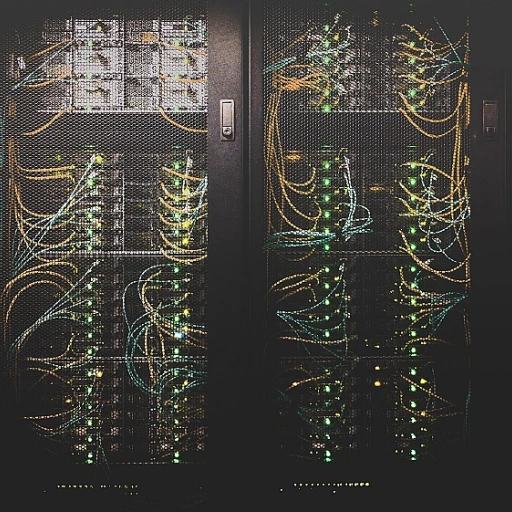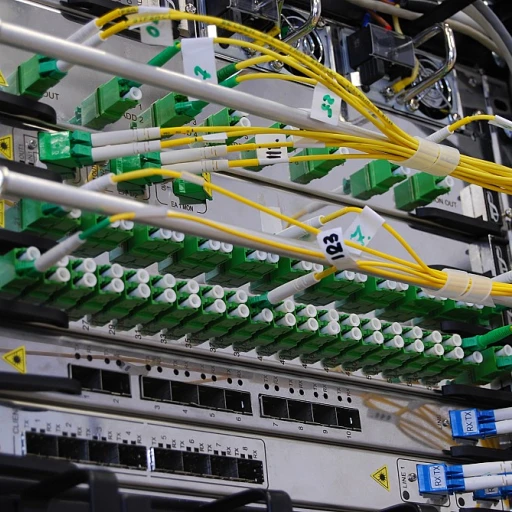
Understanding the Basics of NetSuite and SharePoint
Exploring the Core of NetSuite and SharePoint
In the realm of business management, NetSuite and SharePoint stand out as pivotal tools. NetSuite is a comprehensive cloud-based platform that offers a suite of services including ERP, CRM, and e-commerce solutions. It helps businesses manage their core processes in real time, providing a unified view of business operations. On the other hand, Microsoft SharePoint is a robust document management and collaboration platform, enabling teams to work together efficiently by sharing files and resources.
Why Businesses Rely on These Platforms
Both platforms offer unique advantages. NetSuite's strength lies in its ability to handle complex business processes and provide real-time data integration. It allows businesses to create and update records seamlessly, ensuring that decision-making is based on the most current information. SharePoint, with its powerful document management capabilities, enhances collaboration by organizing and storing files securely, making it easier for teams to access and share information.
The Role of Integration in Business Efficiency
Integrating NetSuite and SharePoint can significantly enhance business efficiency. By combining the strengths of both platforms, businesses can streamline their operations, reduce redundancy, and improve data management. This integration supports automation, allowing for real-time updates and ensuring that all systems are synchronized. As businesses grow, the need for seamless integration becomes more critical, enabling them to adapt quickly to changing demands.
For more insights on how software services are evolving, check out how Poool Agency is reshaping the future of software services.
The Need for Integration
The Imperative for Streamlined Operations
In today's fast-paced business environment, the integration of systems like NetSuite and SharePoint has become essential for enhancing operational efficiency. Businesses are increasingly relying on data-driven decision making, and integrating these platforms allows for seamless data flow and management. This integration helps in creating a unified system where NetSuite records and SharePoint files can be accessed and updated in real time, ensuring that all stakeholders have access to the most current information.
Enhancing Data Management and Accessibility
One of the primary reasons businesses pursue integration is to improve data management. By integrating NetSuite with SharePoint, companies can automate the flow of information between systems, reducing the need for manual data entry and minimizing errors. This automation not only saves time but also enhances the accuracy of business processes. Furthermore, integrating NetSuite with Microsoft SharePoint allows for better document management, making it easier to track changes and updates to records.
Facilitating Real-Time Collaboration
Integration also plays a crucial role in fostering collaboration across departments. With real-time data integration, teams can work together more effectively, accessing the same information simultaneously. This is particularly beneficial for customer service teams who need up-to-date information to provide the best service possible. By integrating NetSuite and SharePoint, businesses can ensure that all team members are on the same page, leading to more informed decision-making and improved customer satisfaction.
Security and Compliance Considerations
While the benefits of integration are clear, businesses must also consider the security implications. Ensuring that data is securely transferred between systems is paramount. By leveraging the security features of both NetSuite and SharePoint, companies can protect sensitive information and maintain compliance with industry standards. This is a critical aspect of integration that cannot be overlooked.
For more insights on optimizing business strategies, you can explore our detailed analysis on optimizing procurement strategies.
Challenges in Integrating NetSuite and SharePoint
Overcoming Integration Hurdles
Integrating NetSuite and SharePoint can significantly enhance business efficiency, but it comes with its own set of challenges. One of the primary hurdles is ensuring seamless data integration between the two platforms. NetSuite and SharePoint are robust systems, each with unique data structures and management protocols. Aligning these can be complex, especially when dealing with custom records and record types.
Another challenge is maintaining real-time data synchronization. Businesses rely on up-to-date information for effective decision making. Any delay in record updates or discrepancies in document management can lead to inefficiencies and errors. This is particularly critical when integrating NetSuite records with SharePoint files.
Security is also a major concern. Both platforms handle sensitive business and customer data, making it essential to implement robust security measures during integration. Ensuring that data remains secure while being transferred between systems is crucial to maintaining trust and compliance with regulations.
Moreover, the integration process itself can be time-consuming and resource-intensive. Businesses need to allocate sufficient time and resources to create and test the integration solutions. This often involves working with third-party tools or custom development, which can add to the complexity and cost.
Despite these challenges, the benefits of integrating NetSuite and SharePoint are substantial. By addressing these hurdles, businesses can unlock the full potential of their automation and management capabilities, leading to improved efficiency and productivity. For those interested in exploring the broader implications of software integration, consider reading about a career in prepackaged computer software.
Solutions and Tools for Seamless Integration
Tools and Techniques for Effective Integration
Integrating NetSuite and SharePoint can significantly enhance business efficiency, but achieving seamless integration requires the right tools and techniques. Businesses often face challenges when trying to synchronize data between these two platforms. However, with the right solutions, these hurdles can be overcome, ensuring smooth data flow and improved business processes.
Choosing the Right Integration Platform
One of the first steps in integrating NetSuite and SharePoint is selecting a robust integration platform. These platforms facilitate real-time data exchange, allowing businesses to manage records and files efficiently. They also support automation, which reduces manual data entry and minimizes errors. Popular integration platforms offer pre-built connectors for NetSuite and SharePoint, simplifying the process of linking these systems.
Automation and Real-Time Data Exchange
Automation plays a crucial role in integration. By automating data transfer between NetSuite and SharePoint, businesses can save time and reduce the risk of errors. Real-time data exchange ensures that any updates in NetSuite records are immediately reflected in SharePoint, and vice versa. This real-time synchronization is vital for decision making, as it provides businesses with up-to-date information.
Ensuring Data Security and Compliance
Security is a major concern when integrating systems. Businesses must ensure that their integration solutions comply with data protection regulations. This involves implementing robust security measures to protect sensitive information during data integration. Encryption, access controls, and regular audits are essential to maintaining data integrity and security.
Custom Solutions for Unique Business Needs
Every business has unique requirements, and sometimes off-the-shelf solutions may not suffice. Custom integration solutions can be developed to address specific business needs. These solutions can be tailored to handle custom record types and specific data management requirements, ensuring that the integration aligns perfectly with business processes.
By leveraging the right tools and strategies, businesses can overcome the challenges of integrating NetSuite and SharePoint, paving the way for enhanced efficiency and streamlined operations.
Impact on Business Processes
Transforming Business Operations with Integrated Systems
Integrating NetSuite and SharePoint can significantly enhance business processes by streamlining data management and improving operational efficiency. When these platforms work together, businesses can experience real-time data synchronization, which is crucial for maintaining up-to-date records and ensuring that all departments have access to the latest information.
Enhancing Data Management and Accessibility
With the integration of NetSuite and SharePoint, businesses can automate the flow of data between systems, reducing the need for manual data entry and minimizing errors. This seamless data integration allows for better document management, as files and records are easily accessible and can be updated in real time. The ability to manage custom records and record types efficiently ensures that businesses can maintain accurate and comprehensive data sets.
Boosting Decision-Making Capabilities
Access to real-time data is a game-changer for decision-making processes. By integrating NetSuite and SharePoint, businesses can leverage comprehensive data insights to make informed decisions quickly. This integration supports better customer management by providing a holistic view of customer interactions and transactions, enabling businesses to tailor their strategies to meet customer needs effectively.
Improving Security and Compliance
Security is a critical concern for any business, and integrating NetSuite and SharePoint can enhance security measures by ensuring that sensitive data is protected across platforms. With robust security protocols in place, businesses can safeguard their information while complying with industry regulations. This integration also facilitates better management of user permissions, ensuring that only authorized personnel have access to specific data and records.
Optimizing Time and Resource Management
By automating routine tasks and streamlining workflows, businesses can save time and allocate resources more efficiently. The integration of NetSuite and SharePoint helps businesses reduce operational costs and improve productivity by minimizing the time spent on manual processes. This optimization allows employees to focus on more strategic tasks that drive business growth.
Future Trends in Software Integration
Emerging Trends in Software Integration
As businesses continue to evolve, the integration of platforms like NetSuite and SharePoint is becoming increasingly crucial. The future of software integration is set to be shaped by several key trends that will enhance business efficiency and streamline operations.
Automation and Real-Time Data Processing
Automation is at the forefront of software integration, allowing businesses to create seamless workflows that save time and reduce manual errors. By integrating NetSuite with SharePoint, companies can ensure real-time data processing, enabling instant record updates and improving decision-making processes. This real-time capability is essential for maintaining accurate business records and enhancing customer management.
Enhanced Security Measures
With the increasing reliance on data integration, security remains a top priority. Future solutions will focus on strengthening security protocols to protect sensitive business information. Integrating NetSuite and SharePoint will require robust security systems to safeguard data and ensure compliance with industry standards.
Advanced Document Management
Document management is another area where integration can provide significant benefits. By combining the capabilities of NetSuite and SharePoint, businesses can streamline their document management processes, ensuring that files are easily accessible and organized. This integration helps in managing custom records and record types efficiently, enhancing overall business processes.
Platform Interoperability
As more businesses adopt diverse software solutions, the need for platform interoperability becomes critical. Future integration solutions will focus on creating flexible systems that allow seamless communication between different platforms. This interoperability will enable businesses to leverage the full potential of their software investments, ensuring that systems like NetSuite and SharePoint work harmoniously together.
AI and Machine Learning Integration
Artificial intelligence and machine learning are set to play a significant role in the future of software integration. These technologies will enable more intelligent data management and analysis, providing businesses with insights that drive growth and efficiency. Integrating AI capabilities with NetSuite and SharePoint will help businesses automate complex processes and improve overall performance.
In conclusion, the future of software integration is promising, with advancements in automation, security, and AI paving the way for more efficient business operations. As businesses continue to integrate platforms like NetSuite and SharePoint, they will be better equipped to handle the challenges of a rapidly changing digital landscape.





-large-teaser.webp)









